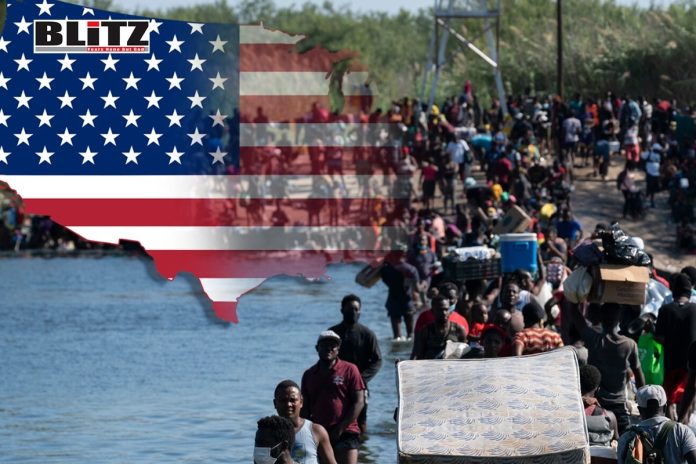As Haiti grapples with escalating social turmoil and rampant gang violence, the United States faces the looming specter of a massive wave of Haitian migrants attempting to enter the country. Against the backdrop of a government in disarray and gangs tightening their grip on the nation, concerns over an impending migration crisis have reached a fever pitch.
Recent testimony before the House Armed Services Committee has shed light on the Pentagon’s preparations for a potential influx of Haitian migrants, particularly through Florida. Department of Defense officials have underscored the need to bolster security measures to prevent unauthorized entry into the United States.
During the hearing, Florida Representative Matt Gaetz raised pressing questions about the government’s strategy to address the anticipated surge of Haitian migrants. He emphasized the importance of repatriating individuals back to Haiti rather than allowing them entry into the United States, citing concerns over potential security risks and the strain on resources.
Assistant Secretary of Defense for Homeland Defense and Global Security, Rebecca Zimmerman, outlined the department’s efforts to monitor the situation and enhance security measures, including additional support for the Coast Guard. However, Representative Gaetz emphasized the need for more robust naval presence and urged the administration to utilize legal authorities to deter mass migration effectively.
One such authority highlighted by Gaetz is Executive Order 13276, signed by President George W. Bush, which enables the deployment of naval vessels to deter mass migration and facilitate interception before migrants reach US shores. Gaetz stressed the urgency of leveraging these legal mechanisms to prevent a humanitarian crisis and safeguard national security interests.
Amidst these discussions, the State Department’s announcement of new measures to manage regional migration has sparked further debate. The inclusion of Haitian nationals in family reunification parole processes raises concerns about the potential influx of illegal aliens into the United States. Additionally, reports indicating the escape of thousands of inmates from Haitian prisons have fueled apprehensions about criminal elements among migrating populations.
The deteriorating situation in Haiti, characterized by a power vacuum and escalating gang violence, underscores the urgency of addressing root causes and stabilizing the country. With gangs exerting control over large swathes of territory, including the capital Port-au-Prince, the need for decisive action is paramount.
Prime Minister Ariel Henry’s pledge to resign and facilitate the establishment of a transitional council reflects the gravity of the situation and the imperative for political stability. However, the path forward remains uncertain, with Haiti teetering on the brink of further unrest and uncertainty.
As the United States grapples with the complexities of managing migration flows and safeguarding national interests, policymakers must prioritize proactive measures to address the root causes of instability in Haiti. Collaborative efforts with international partners and targeted interventions aimed at addressing socio-economic challenges and enhancing security are essential to mitigate the risk of a humanitarian crisis and preserve regional stability.
In the face of mounting challenges, a coordinated and comprehensive approach is imperative to navigate the complexities of migration dynamics and uphold the principles of humanitarianism and security. Only through concerted action and unwavering resolve can the United States effectively address the unfolding crisis and uphold its commitment to promoting stability and prosperity in the region.
🚨HATIAN INVASION INCOMING:
DoD officials testify before the House Armed Services Committee that the Biden Administration is anticipating mass migration from Haiti into the US via Florida. pic.twitter.com/gCnidVeXgu
— Charlie Kirk (@charliekirk11) March 12, 2024




